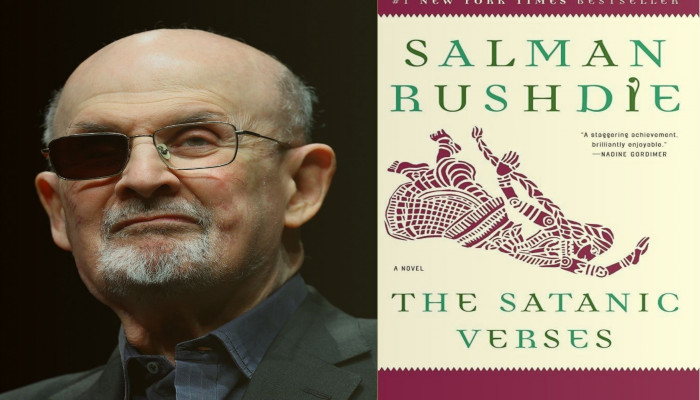India lifts three-decade ban on Salman Rushdie's The Satanic Verses after court ruling
- In Reports
- 01:50 PM, Nov 08, 2024
- Myind Staff
The Delhi High Court's decision to lift the ban on the import of The Satanic Verses by Salman Rushdie marks a notable shift in India's stance on the book, which was originally banned in 1988 after being deemed blasphemous by certain Muslim communities. The court determined that the government could not provide the original notification that imposed the ban, leading to its decision to lift the ban. This ruling will enable the import and sale of the novel in India for the first time in over three decades.
The case challenging the ban began in 2019, reflecting ongoing debates over freedom of expression, censorship and the rights of authors and readers in India. Rushdie’s work, while controversial, has also been acknowledged as a significant contribution to global literature, with the ban often cited in discussions of state censorship and literary freedom.
According to a November 5 court order, India's government told the Delhi High Court that the import ban order "was untraceable and, therefore could not be produced." As a result, the court said it had "no other option except to presume that no such notification exists".
"The ban has been lifted as of Nov. 5 because there is no notification," Uddyam Mukherjee, lawyer for petitioner Sandipan Khan, said. India's interior and finance ministries did not respond promptly to requests for comment.
Khan, who filed the plea, stated that he approached the court after being informed by bookstores that The Satanic Verses could not be sold or imported into India. Upon further investigation, he was unable to find the official ban order on any government website. Even during court proceedings, the government failed to present the order, he claimed.
"None of the respondents could produce the said notification ... in fact, the purported author of the said notification has also shown his helplessness in producing a copy," the Nov. 5 order noted, referring to the customs department official who drafted the order.
Rushdie's fourth novel, The Satanic Verses, became embroiled in global controversy shortly after its release in September 1988, as some Muslims deemed passages about Prophet Muhammad to be blasphemous. The book led to violent protests and book burnings across the Muslim world, including in India, which has the third-largest Muslim population globally.
In 1989, Iran's erstwhile Supreme Leader, Ayatollah Ruhollah Khomeini, issued a fatwa, or religious decree, calling for Rushdie's assassination, forcing the Booker Prize-winning author into hiding for six years. In August 2022, more than three decades after the fatwa, Rushdie was stabbed on stage during a lecture in New York, resulting in the loss of vision in one eye and impairing the use of one of his hands.







Comments